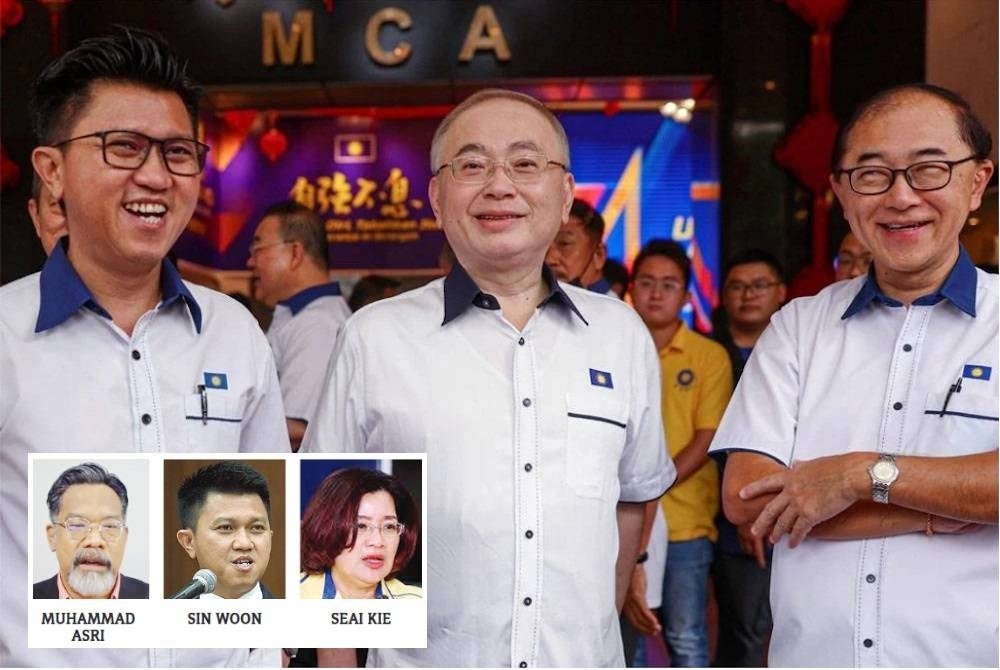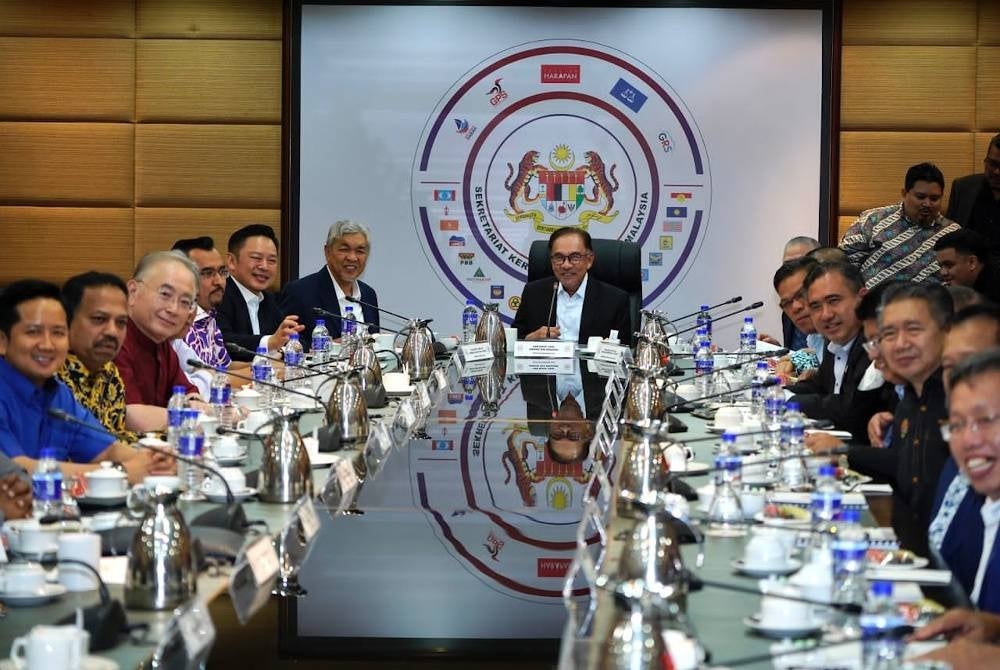Key to MCA's relevance
KHAIRIL ANWAR MOHD AMIN
SHAH ALAM - MCA needs to change its political ideology by becoming a multiracial party or joining existing "multiracial" parties such as DAP, PKR and Gerakan to remain relevant in politics in the country.
National Professors Council (MPN) research fellow Dr Muhammad Asri Mohd Ali said the possibility that MCA will be sidelined from playing a role in helping the Barisan Nasional (BN) and Pakatan Harapan (PH) coalition win in the state election in six states was inevitable following the party's influence which has been declining since the 12th General Election (GE12) in 2008.
He said MCA's approach which was monoethnic and not open to the political ideas of various races was also a major contributor to the fact that the Chinese community in the country was increasingly pushing the party aside.
"The political landscape of the Chinese community nowadays is different from the Malay community where the ethnic groups are no longer attracted to racist and chauvinistic political ideas, but instead are more inclined to support parties that emphasise aspects of racial diversity, governance with integrity and pro-capitalist development.
"For that reason, majority of Chinese voters in urban areas have no problem voting for Malay or Indian candidates from multiracial parties such as DAP and PKR because they no longer see the issue of "Chineseness" as the main subject.
"This is different from Malay voters whether in urban or semi-urban areas who are still conservative and tend to choose candidates based on ethnic and religious factors," he told Sinar Premium, yesterday.
He was commenting on whether MCA's influence was eroding after the party president Datuk Seri Dr Wee Ka Siong revealed that there was still no final decision from the BN-PH leadership in allocating any electoral seats to MCA in the upcoming state elections.
Wee said he had nothing to comment on since he was not called or asked to attend any special meeting to discuss the distribution of electoral seats among the parties in the unity government.

Commenting further, Asri stressed that MCA as a small component party in the BN coalition needed to accept the fact that the party's chances of being given any seats in the state election in the six states were very slim.
With the election seat discussion strategy between BN-PH being very different from the approach adopted by the BN Supreme Council following the discussion between coalition parties, he said he viewed that the basis of the negotiations was still the maintenance of the status quo for the parties that won in the previous general election.
"With MCA's disappointing election performance and almost no state assembly seats in the state election in the six states, Umno as the main party of BN is also seen as having difficulty handing over the rural seats allocated to PH to them later.
"This is because they themselves face the challenge of regaining the support of Malay voters after GE15 who are increasingly turning to Pas and PN. Therefore, if MCA does not change its political ideology or merge with other multiracial parties, it will be difficult for the party to find a place in the coalition of the unity government dominated by DAP-PKR-Umno," he said.
Meanwhile, former MCA Women chief Datuk Heng Seai Kie was of the opposite view saying that the party was increasingly marginalised in the eyes of non-Malay voters in the country.
Asserting that MCA was still able to attract the support of rural voters, the Perak MCA Women chief was also of the view that the party should be given electoral seats for each state that will hold State Legislative Assembly elections.
"MCA always respects the spirit of unity in BN and the spirit of consensus that exists between the parties in the unity government.
"In the spirit of cooperation and camaraderie, MCA will agree if it is not given any seats to compete in the six state elections.
"That is only if the decision is considered the best strategy for the victory of the BN-PH coalition and is jointly finalised in the BN Supreme Council.
"However, I personally still hope that both MCA and MIC will be given seats to contest regardless of the number in each state because it is symbolic of PH's respect and appreciation for the parties that made the unity government a success," she said.
Heng said she also hoped that the election seat negotiation session between the parties in the unity government will not be based on the status quo principle because the parties in the new mega coalition needed to apply the qualities of team spirit, consideration and kindness to the new coalition partners.
"Can't say MCA and MIC lost many seats in the previous general election, we will continue to lose in the six state elections because we know that in every election, there will be a change in the voting trend.
"I think all parties involved in the unity government should be given a role in state elections because the basis for maintaining the harmony of this new coalition can only happen if all parties have mutual respect and appreciation for each other," she said.
Meanwhile, MCA secretary-general Datuk Chong Sin Woon stressed that the door to negotiation for MCA to obtain a seat to contest in the six state elections was still not closed.
"With MCA representatives involved in the electoral seat consultation committee between the parties in the unity government, everything is still possible. What is certain is that it needs to be discussed as a block and not involving specific individuals," he said.










